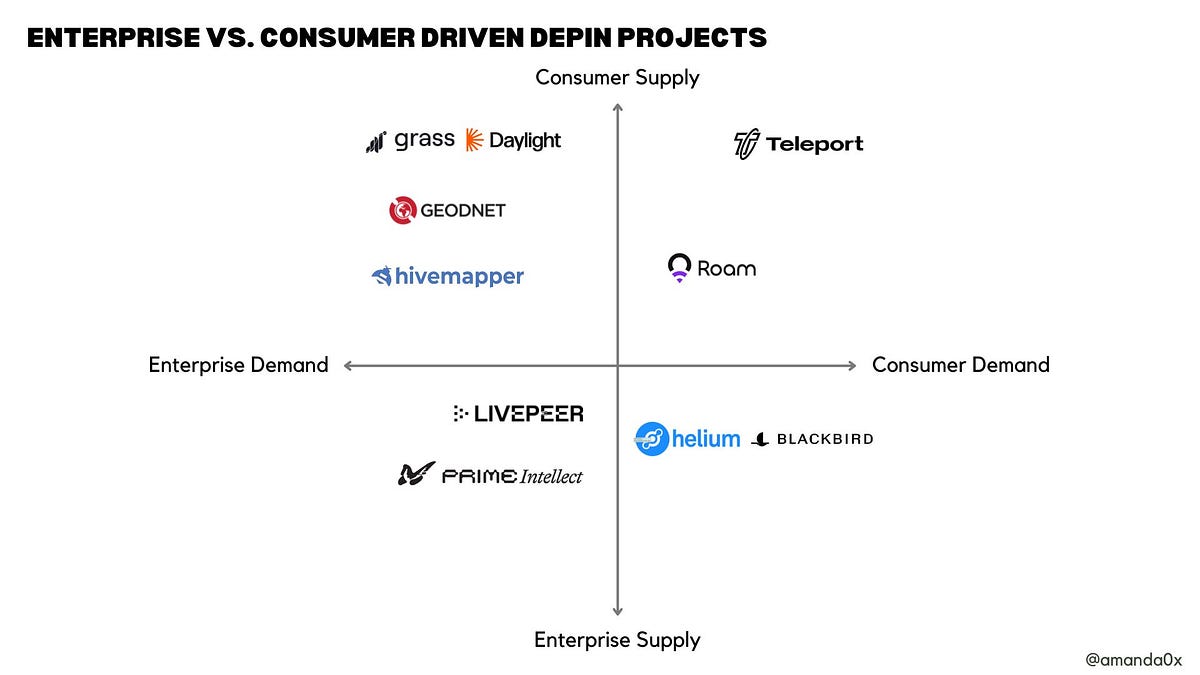Latest DePIN Token Launch News
View Token Launch Projects
6 months ago
Titan Blockchain Network Major Upgrade Scheduled for December 2024
The Titan blockchain network is set to undergo a significant upgrade, scheduled to take place from December 7, 2024, at 08:00 UTC to December 9, 2024, at 08:00 UTC. This upgrade aims to introduce token issuance capabilities, allowing users to mint uniquely identifiable tokens directly on the Titan chain. Additionally, it will prepare the network for its fourth testnet phase, which promises to enhance the overall infrastructure and user experience. During this period, the network is expected to experience an estimated downtime of 48 hours, during which staking operations, token transfers, and all other on-chain activities will be temporarily suspended.
One of the key highlights of this upgrade is the introduction of the Token Factory, which will empower users to create their own tokens on the Titan blockchain. This feature is expected to foster innovation and expand the use cases for the Titan network. Furthermore, the fourth testnet will reward participants with TNT4 tokens, incentivizing engagement and testing of the new features. More details regarding the fourth testnet will be shared in forthcoming announcements, ensuring that the community stays informed about the developments.
Validator node operators are urged to complete all necessary updates before the upgrade window to avoid penalties. Nodes that are not updated by the deadline will be taken offline, emphasizing the importance of maintaining synchronization to prevent service disruptions. The Titan Network appreciates the continued support from its community and encourages users to reach out via email or social media channels for any assistance during this transition period.

6 months ago
JasmyCoin Surges to New Heights Amid Bitcoin Rally and Strategic Partnership
This week, JasmyCoin has experienced a remarkable surge, reaching its highest price since 2022, trading at $0.052. This impressive increase of 1,000% from its lowest point this year is largely attributed to the recent rally of Bitcoin, which hit a record high of $104,000. The rise in Bitcoin's value has positively impacted other cryptocurrencies, including Litecoin, Bitcoin Cash, and Ravencoin, all of which have seen significant gains. Additionally, JasmyCoin's popularity is reflected in its growing number of holders, which has increased to nearly 80,000 from 76,300 just a month ago, according to CoinCarp.
In addition to the Bitcoin rally, JasmyCoin's partnership with IoTeX, a prominent player in the Internet of Things (IoT) sector, has further fueled its growth. This collaboration is expected to drive DePIN (Decentralized Physical Infrastructure Networks) innovation in Japan, a key market for the cryptocurrency industry. Major partnership announcements often lead to price rallies in the crypto space, and JasmyCoin is no exception. With a market capitalization now reaching $2 billion, JasmyCoin has gained significant traction among investors.
Technical analysis of JasmyCoin reveals a strong performance throughout the year, characterized by the formation of a golden cross, where the 50-day and 200-day moving averages intersect. Furthermore, the coin has completed a cup and handle pattern, indicating a potential continuation of its upward trend. Analysts suggest that if JasmyCoin maintains its momentum, it could rise to $0.075, representing a 50% increase from its current level. However, this bullish outlook could be jeopardized if the price falls below the critical pivot level of $0.03662.

6 months ago
Helium Mobile: Price Surge and Future Predictions
In recent weeks, Helium Mobile has seen a remarkable price increase of nearly 125%, reaching $0.0022 on December 1st. However, in the last 24 hours, the token has experienced a slight decline of approximately 1.5%, bringing its current trading price to $0.00134. Helium Mobile, which launched in December 2023, is a decentralized mobile network service that integrates the Helium Network's peer-to-peer infrastructure with the Solana blockchain and partners with T-Mobile for 5G connectivity. The token serves as the network's built-in cryptocurrency, incentivizing users to deploy personal 5G hotspots that enhance the network's infrastructure.
The primary function of Helium Mobile's token is to reward users who contribute to the network by setting up hotspots, which act as localized cell towers. Participants earn MOBILE tokens that can be used within the Helium ecosystem or traded externally. The token supports various applications, including decentralized connectivity solutions for IoT devices, package tracking, drone navigation, and lost pet recovery. As more users join the network, its strength and community-driven nature grow, fostering a robust decentralized mobile infrastructure.
Looking ahead, analysts have varying predictions for Helium Mobile's price trajectory. CoinCodex suggests a potential surge of over 236%, with the token possibly reaching $0.004574 by January 2025. DigitalCoinPrice anticipates that MOBILE could surpass its previous high, projecting a price range between $0.00287 and $0.00299 by the end of 2024. However, Wallet Investor offers a more conservative outlook, estimating a maximum price of $0.00183 by December's end. For 2025, predictions range from $0.000226 to $0.00356, while by 2030, estimates suggest MOBILE could trade between $0.003684 and $0.0123. Despite the optimistic outlook, potential investors should remain cautious, as the cryptocurrency market is inherently volatile.

6 months ago
Helium (HNT) Price Surges to New Nine-Month High Amid Bullish Sentiment
The Helium (HNT) token has recently experienced a significant price surge, recording an impressive 8.36% increase within a 24-hour period, reaching a new nine-month high. This upward momentum is accompanied by a trading volume of $59.31 million, reflecting a robust interest in the altcoin. Over the past week, HNT has surged by 35.17%, and a remarkable 42.76% over the last 30 days, indicating a strong bullish trend. Currently, Helium maintains its value above the $8.5 mark, with a Year-to-Date (YTD) return of 27.59%, positioning it at the 85th spot in the cryptocurrency market with a market capitalization of $1.503 billion.
Technical indicators suggest that the bullish sentiment surrounding HNT could continue, with price targets set at $9.510 and $11.070. The Relative Strength Index (RSI) is nearing the overbought territory, while the 50-day and 200-day Exponential Moving Averages (EMA) show a consistent uptrend. This technical analysis hints at a potential continuation of the bullish price action throughout the week. However, market volatility remains a concern, and traders are left wondering whether HNT can maintain this momentum and reach a new 52-week high or if a correction is on the horizon.
Looking ahead, if bullish sentiment prevails, HNT may retest its resistance level of $9.510. Conversely, should bearish trends emerge, the price could drop to its support level of $8.010, with further declines potentially reaching a low of $6.525. The all-time high for Helium stands at $55.22, recorded on November 13, 2021, raising questions about the long-term price prospects of the token. As traders and investors monitor these developments, the future of HNT remains a topic of keen interest in the cryptocurrency community.

6 months ago
Metavisio Unveils World's First Web3 Laptop with Integrated Crypto Wallet
The emergence of Web3 technology is set to revolutionize the computing landscape, with European company Metavisio leading the charge by announcing the world's first Web3 laptop. Developed by its subsidiary, Thomson Computing, this innovative device will feature a built-in cold storage crypto wallet designed to securely store cryptocurrency private keys offline, thereby minimizing hacking risks. While specific technical specifications and a release date are yet to be disclosed, the laptop is expected to cater to a diverse audience, including students, gamers, and general users. The proprietary operating system, dubbed "Web3 OS," is anticipated to be completed by the first quarter of 2025, with initial support for Ethereum Virtual Machine (EVM) networks, Bitcoin, XRP, and Bittensor, and plans for future compatibility expansion.
In addition to its advanced security features, Metavisio's Web3 laptop aims to gamify user engagement by rewarding users with token airdrops for completing specific tasks, contingent upon a KYC process. Pricing for the laptop is projected to range from €499 ($523) to €2,000 ($2,100), making it accessible to a wide range of consumers. Stephan Français, Founder & CEO of Metavisio and Thomson, emphasized that this laptop is designed for a future where users have complete ownership of their digital experiences, laying the groundwork for empowering the next billion users in the Web3 ecosystem.
The announcement of the Web3 laptop comes amidst a surge in Web3 mobile devices, with Solana recently unveiling its Seeker smartphone, which has already garnered 140,000 presales. Other notable entries include XProtocol's Ethereum phone, XForge, and Jambo's JamboPhone 2, priced at $299 and $99 respectively. These developments highlight a growing trend towards integrating blockchain technology into everyday devices, signaling a significant shift in how consumers interact with digital assets and applications in the evolving Web3 landscape.

6 months ago
Shiba Inu, Bittensor, and DTX Exchange Lead the Bull Market Surge
In the current bullish market, Shiba Inu (SHIB), Bittensor (TAO), and DTX Exchange (DTX) are emerging as frontrunners, with DTX Exchange experiencing a staggering 500% increase. Investors are capitalizing on this initial phase of the bull market, with many achieving multi-millionaire status by selecting cryptocurrencies that exhibit strong fundamentals and price momentum. Shiba Inu has gained traction due to the memecoin craze, while Bittensor has recently broken out of its consolidation phase. Experts believe that DTX Exchange is poised for significant returns, making it a potential multi-bagger for investors.
Shiba Inu is nearing an eight-month high, having surged past the critical resistance level of $0.000033. This breakout is indicative of renewed momentum, driven by strong buying interest and increased trading volumes. Technical analysis reveals a rounding bottom pattern, suggesting a bullish reversal. Additionally, on-chain data indicates a potential influx of 33.7 trillion SHIB, which could lead to heightened volatility and significantly impact its price. The community engagement and transaction volumes for Shiba Inu remain robust, further supporting its upward trajectory.
Bittensor (TAO) has also shown impressive growth, gaining over 20% in the past week alone. It has broken free from its previous trading range and is expected to reach new highs soon. Barry Silbert, CEO of DCG, has drawn parallels between Bittensor's potential and that of Bitcoin, referring to it as "the World Wide Web of AI." Meanwhile, DTX Exchange is generating excitement with its recent listing on CoinMarketCap and is projected to reach a price target of $7.5 by the end of March 2025, presenting an enticing opportunity for investors seeking substantial returns. With a dedicated community of over 300,000 members, DTX Exchange is set to revolutionize multi-asset trading with its innovative features and incentives.

6 months ago
XYO Network Shows Strong Bullish Momentum with 185% Surge
The XYO Network has recently demonstrated a bullish trend, particularly noticeable on the hourly timeframe. With a significant price increase of 185% within just 24 hours, most of these gains occurred in a rapid six-hour window, indicating strong buying pressure. Currently, the asset, which boasts a market capitalization of $443 million, is facing a temporary resistance at the $0.02 level, while the next support for buyers is positioned at $0.0284. Observations from the chart suggest that if XYO can maintain an hourly close above $0.032, it will solidify its bullish market structure. Conversely, a drop below $0.0284 could signal a potential retracement towards $0.0217 or lower.
The recent price movements of XYO have been marked by notable volatility, including an impressive 81% rally over 24 hours on November 18th and 19th, followed by a 26% retracement. Despite this pullback, XYO managed to consolidate around the $0.009 area before making another upward move on December 2nd. The analysis of retracement levels reveals an initial impulse move from $0.00857 to $0.0199, showcasing a 131% increase in a mere 21 hours. The On-Balance Volume (OBV) has also surged, indicating heightened demand, while the Money Flow Index (MFI) reflects the prevailing bullish momentum.
Despite the overall bullish sentiment in the altcoin market, which is nearing its all-time high of $1.13 trillion, caution is warranted. A bearish divergence on the MFI in the 4-hour chart suggests a possible short-term price dip. Investors are advised to remain vigilant and hold their positions until the higher timeframe conditions indicate a shift. The current landscape suggests that while XYO is poised for further gains, not all tokens will experience the same level of performance in this bullish market environment.

6 months ago
The Rise of Decentralized Physical Infrastructure Networks and Consumer Engagement
In 2013, Helium was founded to create a wireless infrastructure that could support the rapidly growing Internet of Things (IoT) industry. By 2018, the company pivoted towards a decentralized wireless network model, allowing devices worldwide to connect to the Internet without relying on traditional, power-hungry satellite systems or costly cellular plans. Utilizing token incentives, Helium's network expanded rapidly, boasting over 375,000 hotspots and establishing itself as the largest long-range wide-area network (LoRaWAN) and the fastest-growing cellular network. This innovative approach has inspired over 1,400 Decentralized Physical Infrastructure (DePIN) projects, collectively valued at over $53 billion, demonstrating the potential of blockchain technology to create real-world value through decentralized systems.
Consumers play a crucial role in the DePIN ecosystem, acting as the supply backbone for various networks in exchange for token rewards. These networks can be categorized into physical resource networks, which incentivize consumers to contribute to real-world infrastructure, and digital resource networks, where consumers help build virtual infrastructure. For instance, decentralized energy networks rely on consumers to connect distributed energy resources like solar panels, while decentralized mapping projects leverage consumer-grade hardware to gather location data. Additionally, consumers can contribute their computing power and bandwidth to decentralized compute platforms, enhancing the capabilities of AI and machine learning applications.
As DePIN projects evolve, they are increasingly generating revenue and attracting consumer demand. By tapping into consumer marketplaces and offering direct-to-consumer products, these projects can streamline customer acquisition and enhance user engagement. The DePIN model not only incentivizes new consumer behaviors but also accelerates the adoption of existing ones, particularly in the energy sector. As these networks grow, they unlock new applications and services, creating a flywheel effect that attracts developers and increases consumer adoption. Overall, the intersection of consumers and DePIN is paving the way for innovative solutions and a more decentralized future.

6 months ago
DRIFE Partners with CoinList for Decentralized Ride-Hailing Testnet
DRIFE, a decentralized ride-hailing application operating on the Sui Blockchain, has announced a significant collaboration with CoinList, a platform known for token launches. This partnership aims to introduce the incentivized testnet for DRIFE's Share2Earn location data campaign. Users participating in this initiative will have the opportunity to earn digital tokens by sharing their location data while commuting through the DRIFE app. The reward system is designed to be dynamic, tracking contributions based on leaderboard standings, thus fostering community engagement and participation in the development of the platform.
The collaboration between DRIFE and CoinList is a strategic move to test the Share2Earn campaign before its public rollout. This initiative not only emphasizes the importance of decentralization and community involvement but also highlights DRIFE's commitment to transparency and user empowerment. By allowing users to earn rewards while contributing to the platform's development, DRIFE aims to enhance location-based services and improve overall service quality through community feedback.
Firdosh Sheikh, the Founder and CEO of DRIFE, expressed that this collaboration validates their vision for a decentralized ride-hailing ecosystem, empowering the community to shape the future of transportation. The reward tokens, which will be available on the SUI chain, will be claimable post-token generation event (TGE) with a structured unlock period. However, participation is restricted for individuals from certain jurisdictions, including the UAE, Pakistan, Russia, China, and the US, due to regulatory compliance requirements. DRIFE's goal is to disrupt traditional business models by eliminating corporate intermediaries and empowering drivers, riders, and community developers through blockchain technology.

6 months ago
Top DePIN Altcoins to Watch in December 2024
As November comes to a close and December 2024 approaches, investors are increasingly focusing on portfolio rebalancing and exploring new altcoin opportunities. The Decentralized Physical Infrastructure Network (DePIN) narrative is gaining traction, making it a significant sector to monitor. BeInCrypto has highlighted five top DePIN altcoins to watch in December, including Filecoin (FIL), Arweave (AR), Grass (GRASS), io.net (IO), and NetMind Token (NMT).
Filecoin (FIL) leads the pack with a market capitalization of $3.44 billion. Despite experiencing a decline in value during the second and third quarters, Filecoin has rebounded strongly, with a 56.22% price increase over the last month. Currently, the price momentum is positive, suggesting potential growth to $6.50 in early December. However, if the momentum shifts bearish, it could drop to $4.96. Arweave (AR) follows closely, having increased by 20.98% in the past week, currently priced at $21.13. The altcoin is facing resistance at $22.05, but if it breaks through, it could reach $24.57.
Grass (GRASS) has made headlines with a remarkable 300% increase in October, now priced at $3.48. If it maintains its bullish trend, it may surpass $3.90 and potentially reach $5. io.net (IO), known for being the largest decentralized AI computing network, has seen a 65.13% price increase, currently trading at $2.93. If the bullish trend continues, it could exceed $4. Lastly, NetMind Token (NMT) has surged by 76.10% recently, currently priced at $3.76, with a potential rise above $5 in December if bullish momentum persists. However, profit-taking could lead to a decrease to $2.72. Investors should remain vigilant as market conditions are subject to rapid changes.
Signup for latest DePIN news and updates